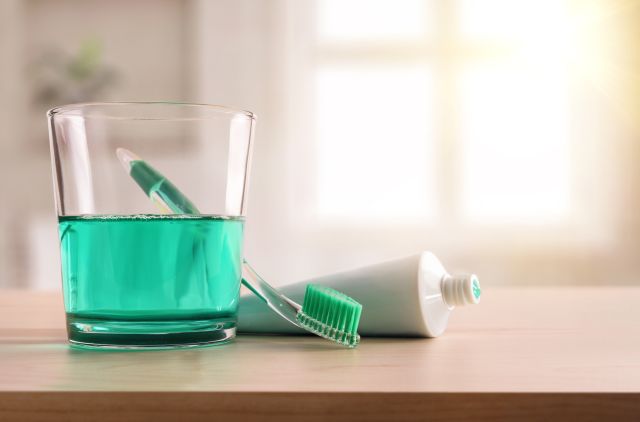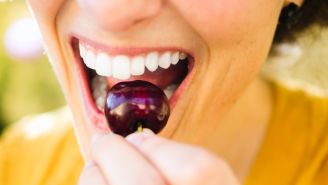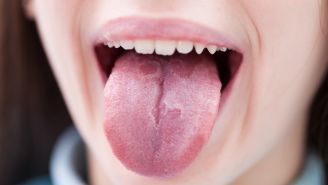They keep your teeth clean, your breath fresh and your mouth healthy, but some everyday oral hygiene products can be harmful when misused. While their benefits outweigh their risks, it’s important to take extra caution with these items, especially if there are children in your household. Here are three products that might be in your medicine cabinet—and what you need to know about them to prevent accidental poisoning.
Toothpaste
Most toothpaste contains fluoride, a mineral that helps strengthen teeth and stave off cavities. Swallowed unintentionally in small amounts—such as by a preschooler learning to brush their teeth—fluoride is typically fairly benign. But when ingested in larger amounts, it can trigger an upset stomach, vomiting and diarrhea. Very rarely, it may lead to more serious problems.
If you see your child intentionally eating toothpaste or catch them with a half-empty tube, dial Poison Control right away at 1-800-222-1222. They’ll assess the situation and provide further instructions. They may also recommend giving your child a calcium-rich snack to counter the effects of the fluoride, like milk, yogurt or a cheese stick.
To prevent future accidents, store toothpaste where children can’t see or reach it, like on a high closet shelf or in a drawer with a safety latch. Reinforce proper brushing skills using the recommended amount of toothpaste and show kids how to rinse and spit without swallowing.
Mouthwash
In addition to brushing and flossing, rinsing with mouthwash can help some people maintain healthy teeth and gums. However, as many nonprescription dental mouthwashes contain ethanol—better known as alcohol—they can pose a threat to children. Kids should not ingest alcohol, and drinking too much may cause alcohol poisoning.
Unless your dentist advises otherwise, the American Dental Association recommends that children under the age of 6 not use mouthwash, since swallowing it is a significant health risk. Kids between the ages of 6 and 12 may opt for a product without alcohol, though they should be supervised by a grownup to ensure proper use. Adults should take care to follow label directions and stash all mouthwash where kids can’t get to it.
If you suspect your child may have been drinking mouthwash, look for signs of intoxication, like staggering, babbling or appearing sleepy. Vomiting, a slowed heart rate and passing out are also indications of a serious problem. Call Poison Control immediately and seek medical attention if you see any of these symptoms.
Denture adhesive creams
Though health problems related to denture creams are exceedingly rare, some older adhesive brands contain zinc, which can be toxic if consumed in very large quantities. If you or a loved one experience nausea, vomiting, loss of appetite, cramps, diarrhea, a headache or neurological issues—like tingling or numbness in your hands and feet—after using or possibly ingesting denture cream, call your healthcare provider. They can assess whether your symptoms are related to excess zinc or, more likely, to a separate medical issue.
To avoid the possibility of a problem:
- Make sure your dentures are properly fitted; adhesive creams aren’t typically necessary if they are.
- If you do use a cream, take care to follow directions closely and limit yourself to the recommended amount. If the adhesive drips off the denture and into your mouth, it’s probably too much.
- Pace yourself. It should take seven or eight weeks to go through a 2.4-ounce tube of adhesive.
- Replace your older, out-of-date products with newer, zinc-free options.
Finally, always store tubes of cream away from children.






